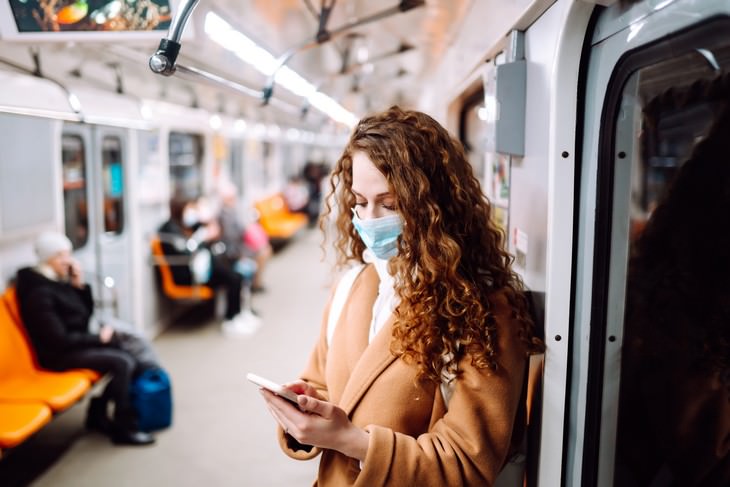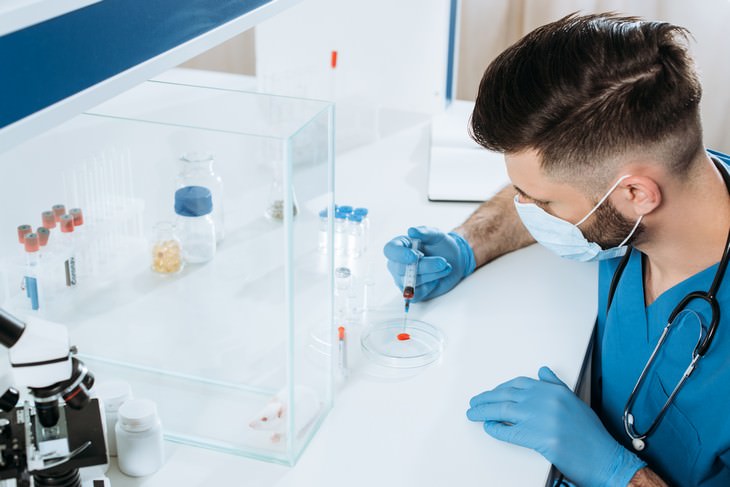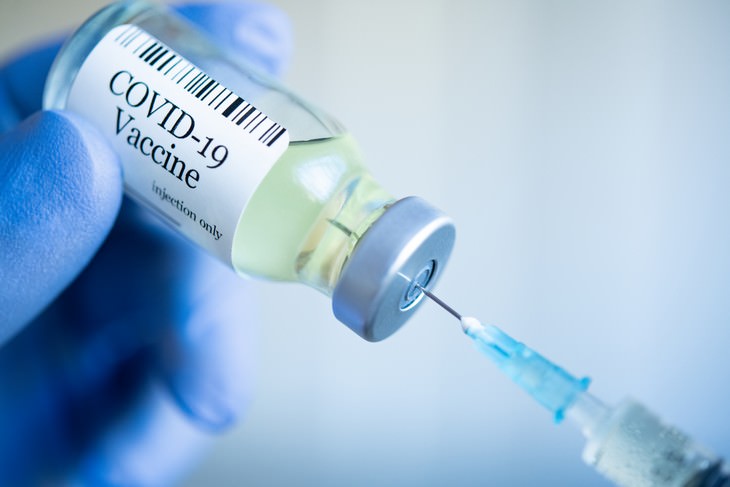This Is What May Happen When A COVID Vaccine Is Approved
By:
Helena M.
Join Us Share Tweet Send to friends
The world has been taken up by the coronavirus storm only about 5 months ago, and yet, it feels like a whole lifetime. Life has undoubtedly changed, and even those of us counting down the days to the long-awaited solution, probably understand by now that there isn’t going to be a clear cut ending. Having a working vaccine will be a major leap forward, but according to experts, it won’t mean life will just switch back to what it was pre-pandemic. “This is not going to be one of those light switch things when all of a sudden we have a vaccine and everyone is vaccinated. It’s going to take some time,” said Hilary Godwin, dean of the University of Washington’s School of Public Health.
Like
So how exactly will life look once the coveted vaccine arrives, and what can we expect a vaccination process to look like? We rounded up the opinions and predictions of public health and mental health experts.
Related:
How Accurate Are COVID-19 Tests?
The Vaccine Race
Researchers around the world are working on more than 165 vaccines; more than two dozen are already being tested in people. Early human studies focus on safety and finding the best dose. The four major front-runners, which are heeded towards the larger phase III trials.
Two of the leading candidates, the relatively young company Moderna, and Pfizer (in collaboration with BioNTech), are basing their approach on
novel methods. They use genetic material from the coronavirus called messenger RNA, or mRNA. Unlike traditional vaccines, which expose the body to a viral protein to stimulate the immune system, mRNA acts as an instruction kit, telling the body how to construct the proteins itself. While the results are overall encouraging so far, experts note that there is a potential risk in relying so heavily on unproven techniques as new technology can sometimes cause unforeseen problems or side effects.
Like
Another hopeful candidate is the vaccine being developed by Oxford University and drugmaker AstraZeneca. Early studies have shown that the Oxford vaccine stimulates the immune system as intended, and larger-scale studies are currently underway. Meanwhile, several Chinese companies are advancing in the race to find a vaccine, with Beijing based company SinoVac showing the most promising results and launching a phase III trial of its vaccine in Brazil.
Related:
There Are Now More Medical Factors Raising the Risk of Severe COVID-19
Why a vaccine will not magically eradicate the novel coronavirus
With all this excitement about the impressive speed at which the vaccines are being developed, it is also raising some concern among health professionals. “It’s great that the science is moving quickly, but it also creates limitations in terms of what we know about the efficacy of the vaccines,” said Aparna Kumar, a nurse-scientist and assistant professor at Thomas Jefferson University, to
Huffington Post.
Like
Apart from that, Kumar also notes a vaccine may not eradicate COVID-19 but will act more similarly to the
flu vaccine, which is about 40% to 60% effective, depending on the year and strain of the flu. While the flu vaccine prevents many people from getting severely ill and from the disease spreading as widely as it could have, we still know that many people are going to catch it. Kumar noted that it’s extremely difficult to truly discuss the effectiveness of a Covid-19 vaccine before it’s distributed to the general public.
That leads us to the other reason an approved vaccine will not be a magic wand - distribution issues. Manufacturing enough doses and distributing them in a timely manner will not be a simple task at all, according to Tony Moody, a physician-scientist at Duke University. “We make billions of doses of the influenza vaccine every year — but doing that for a new product and having the ability to get it rapidly distributed is going to be really challenging.”
May also interest you:
5 Lesser Known Ways to Lower Your Covid-19 Infection Risk
https://www.ba-bamail.com/video.aspx?emailid=35683
The long-term cultural consequences of the pandemic
There is no doubt individuals and societies are profoundly affected by major events that occur in their lifetime. Just as those who lived through the Great Depression might have different tendencies than someone who did not, it is expected that modern-day society will be shaped by the Covid-19 pandemic in more ways than just the health aspect. These are the behavioral and cultural changes experts are predicting, for the days after the pandemic's end.
Wearing a mask will become the norm - many experts claim that wearing a face mask in public spaces is likely to stick around and become a part of the culture in western countries, namely the US. Wearing a mask to protect yourself may become a norm, the way it was in many Asian countries in recent years.
Like
Work culture - The way we treat work and career life is already shifting and transforming before our very eyes, and experts predict this new form is likely to stick around. The imposed lockdowns made many industries adopt
working from home routines and technologies like
Zoom in a capacity that would not have happened otherwise. The realization that work can be accomplished remotely is likely to make most companies more flexible in allowing it, as well as have significantly fewer business trips.
Major concerts and sporting events - Unfortunately, it seems that crowded games and packed concerts will not be a part of the new normal, at least for a long while. “It’s going to be hard to convince people to go back to large gatherings that are simply for entertainment or recreational purposes. I doubt we’re going to have big events with tens of thousands of people coming together,” Moody said.
The safety measures required for holding a large-scale performing arts or sporting events in an enclosed venue may prove to be too much. To ensure distancing venues may need to charge twice as much because they can only fill half as many seats, which will make these events out of reach for many people, an undoubtedly problematic situation. It is likely that outdoor social gatherings, where there is fresh air circulation, will become even more of the norm.
At the end of the day we shouldn't forget, we have all been dealing with this situation, every day 24/7, in the past few months. Despite the unimaginable shifts and turns in our lives in the past months, it’s natural to lose track of the way the pandemic affects the small details of our daily lives, mood, and consciousness. When looking at the big picture, Covid-19 will have many fascinating long-term effects, even after a vaccine is approved.

www.huffpost.com






